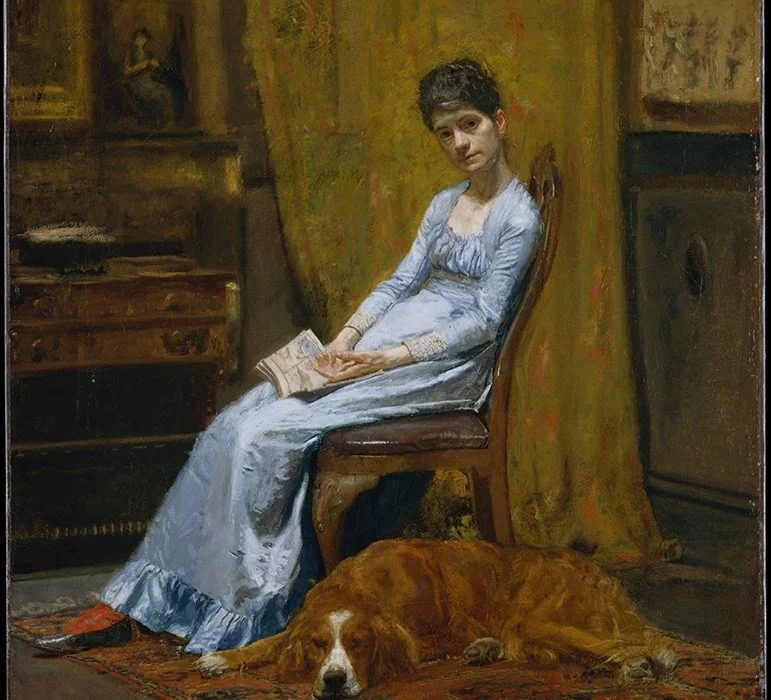Relationships • Breaking Up & Heartbreak
Cures for Love
‘Cures for Love’ is the title of a self-help book written by the Roman poet Ovid in 2 AD that offers consolation and companionship to those who have suffered abandonment in love. In its pages, we find one of the earliest meditations on how to mend a broken heart. Forty-five years old at the time of writing and already on his third marriage, Ovid had extensive personal experience of heartbreak, and knew too of its often tragic impact on friends and acquaintances. ‘Why should any lover hang from a high beam, a sad weight, with a knotted rope round his neck?’ he rued.
As a keen reader of legend and history, Ovid was also versed in the role of heartbreak in multiple appalling mythological tragedies: it was heartbreak that led Dido, Queen of Carthage, to take her own life; that drove Medea to kill her children; that caused Circe to lose her mind; and that inspired the Thracian princess Phyllis to hang herself after her lover Demophon left her to return to his native Athens. This was no light or laughing matter. The end of love might kill.

Ovid’s Advice on How To Get Over a Breakup
Read today, Cures for Love (Remedia Amoris in the original) speaks to us in the tone of a wise, occasionally stern, always concerned and kindly doctor. Ovid’s advice ranges across the field:
— Have lots to do: ‘If you take away idleness, Cupid’s bow is unstrung… be busy, you’ll be safe’. Appease your yearning by going on a trip, entering politics or starting a business.
— Stop idealising the departed lover: ‘Tell yourself often what your wicked girl has done and keep every hurt she inflicted before your eyes.’
— Make an inventory of all the lover’s physical and psychological flaws and rehearse these every day: ‘I want you to become fluent in them!’
— Don’t beg or lose your dignity in front of your ex: ‘Though, unhappy man, you may be roasting in the midst of Etna, make it seem to your girl that you’re chillier than ice… She’ll soon drop her disdain when she sees your indifference.’
— Never go back to someone who has rejected you: ‘The door is wide open? Though you’re called to, pass by.’
— Be careful of any communication: ‘If you love but don’t wish to, avoid making contact.’
— Cut yourself off from the lover’s friends and family. Every reminder worsens the illness: ‘For you to reach dry land, it’s not enough for you to leave the girl. Say goodbye to her mother, sister and the nurse who’s in the know.’
— Beware of memories: ‘Rereading letters shakes a steadfast heart.’
— Delete photos: ‘Remove the wax images of her.’
— Stay away from music and theatre. Avoid poetry too: ‘Disloyally I banish even my own gifts.’
— Either drink so much you forget your grief – or drink nothing at all so you remember your wisdom: ‘if it’s anywhere between the two it’s bound to do you harm.’
— Have a lot of new relationships: ‘Vast rivers are thinned out through many channels; fierce flames die down when the fuel’s removed.’ (In case we want to inscribe this on the wall in the original: Grandia per multos tenuantur flumina rivos / Saevaque diducto stipite flamma perit). ‘Let her be just one of many to you now.’
— Spend time in the countryside. Get involved in gardening. Raise sheep. Cultivate vines.
— Surround yourself with friends; avoid too much solitude: ‘Fear seclusion, men who’ve been hurt by women, women by men.’
— Don’t get embittered or cross with exes: ‘That conclusion suits uncivilised natures.’
— Don’t get petty about belongings and presents: ‘Tell her to keep the gifts you gave her.’
— Forgive Cupid; he doesn’t know what he’s doing.
— Expect it to take far, far longer than you wish: ‘Put faith more in love being extinguished slowly than suddenly.’
Dignity in Shared Suffering
The advice is consistently solid and applicable. But its true power arguably lies less in any particular recommendation than in the idea that someone, over two thousand years ago, understood exactly – with a freshness that might have us checking dates in disbelief – what now feels utterly agonising in its novelty and individuality.
We, who are mired in the specifics of our story, can raise our eyes and situate ourselves more accurately – and redemptively – in a boundless, timeless landscape of loss. None of this began when they started pulling away after the holidays or before their friend’s leaving party; it has been going on since the time of Homer and Augustus, since Romulus abandoned Remus and Mark Antony forsook his duties for Cleopatra. Long before the Crusades, the Beatles, the Battle of Lepanto or the construction of Chartres Cathedral, there were men and women shattering one another’s faith in everything by smiling wanly and asking for a bit more space. This disaster has been unfolding for a very, very long time. It is no personal flaw, no reflection of a modern, technologically-inspired malaise. The affliction is encoded in our humanity.
But the ancientness dignifies the relentless crying we did in the bathroom last weekend. We aren’t just weak. We stand in a line of mighty lovers who have been felled by their partner’s changes of mind. We’re going through what the Queen of Carthage endured; we’re suffering as Thracian royalty did. We are partaking in one of the oldest, grandest forms of sorrow.
It may help that Ovid’s advice is expressed in an antique tongue we’re unlikely to understand. When he writes successore novo vincitur omnis amor (‘every love is defeated by a fresh successor’), it matters less what’s being said than that it’s being said in a Latin once spoken from the shores of Britannia to the banks of the Euphrates –in the language of those who built the Colosseum and the Pantheon, fought in the battles of Actium and Cannae, made goblets now held in the museum of the Vatican, and wrote down inventories of olive oil in the markets of Hispania. It is a cadenced, alien language that draws a line across time from the Roman Forum to the desk where you now sit, scrolling through your phone, pretending to work, eating too many biscuits, looking out at the trees, wondering where it all went wrong.
It’s not pretentious to delight when Ovid keeps referring to strange historical and mythological characters – when he tells us that ‘Callirhoe made Alcmaeon share her bed, lest he always love Alphesiboea.’ Or that Orestes’s pain after killing Clytemnestra was soothed by the friendship of the loyal Pylades. The allusions help relativise our mess. We, who’ve been ripped open by our perfidious sweetheart, who were going to go skiing with them next winter and start work on the garden together, can now make some unexpected suffering friends from foreign lands and eras. It hurts like hell; but at least it’s not – on top of everything else – in any way new.
How to Mend a Broken Heart
We need so much reassurance. We are terrified. The pain doesn’t seem to end. We so badly want someone to have walked this path before, and to tell us that there will be some kind of bearable conclusion. Ovid is sure there will be. He finishes his book by telling Cupid that he knows how to outwit him – and by reminding Dido that if only she had been able to take his advice, she’d still be alive.
Our little wretch from Instagram – who gashed our heart and destroyed our peace – may presently be partying without remorse in Brooklyn or Lima, Melbourne or Jakarta. We may be horribly alone with our betrayal and confusion. But we are, at least, it turns out, in very good company among those who have long wrestled with the timeless question of how to mend a broken heart.

























